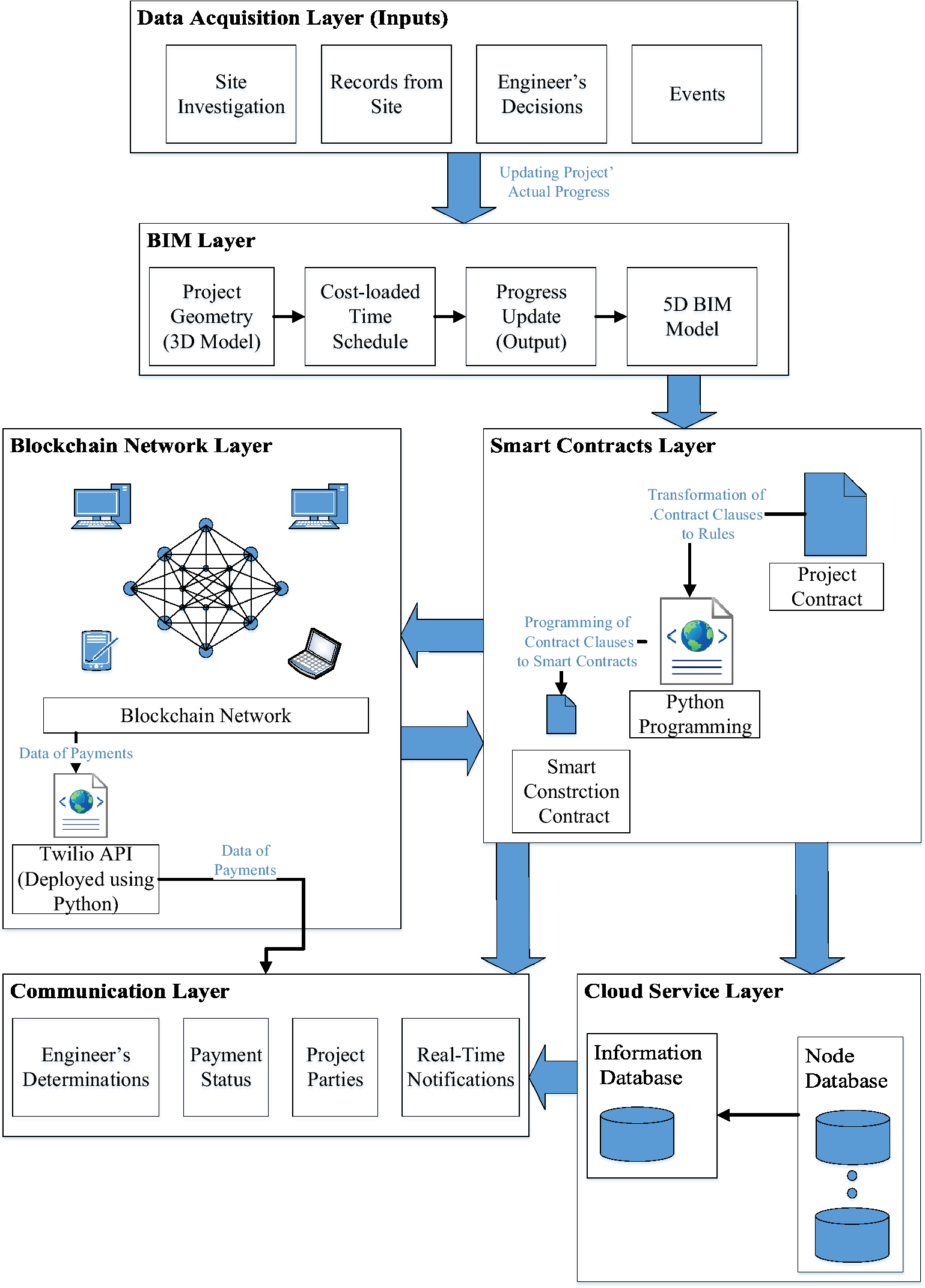In a ground-breaking development, a novel framework has emerged, leveraging the power of smart contracts, block chain, and Building Information Modeling (BIM) technologies to enhance construction projects’ cash flow and revolutionise contract management. This innovative approach addresses the persistent issue of poor payment practices, which has plagued the construction industry for years, leading to project disruptions, financial instability and even business failures.
This framework promises to secure payments, streamline processes and foster trust among project parties by harnessing block chain and smart contracts’ transparency, security and automation capabilities. Successful implementations of this integrated approach in the United States and Canada have demonstrated its potential to transform the industry.
The construction industry has long been a vital contributor to the global economy, with the U.K. alone generating approximately £117 billion in 2018, accounting for 6 percent of the country’s GDP. Furthermore, global construction spending will reach USD 12.4 trillion by 2022. However, the industry faces numerous challenges, with poor payment practices standing out as a primary concern. Despite payment regulations outlined in contracts, delays, non-payments and disputes frequently arise, jeopardising projects and undermining financial stability of contractors and the entire supply chain.
Block chain, an immutable and transparent ledger, eliminates the need for a centralised trusted third party and offers a secure and trustworthy transaction platform. Its adoption in the construction industry can potentially reduce disputes stemming from delayed payments and alleviate cash flow problems.
Several researchers have successfully implemented the integration of block chain, BIM and smart contracts for issuing payments to subcontractors in real construction projects in the United States and Canada. Building on these achievements, a novel framework has been proposed to enhance construction projects’ cash flow across different levels of adoption. The framework utilises smart contracts, block chain and BIM technologies to develop a smart construction contract, ensuring integrity and enforceability.


